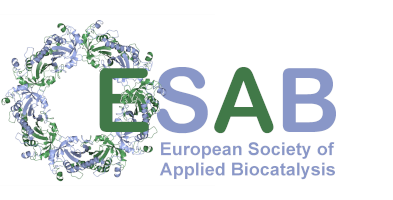Unlocking the Microbiome as a Screening Tool for Cancer Prevention
Abstract
The burgeoning microbiome field has reshaped our understanding of the pathogenesis of numerous conditions [1-4], revealing unexpected links between our microbiomes and disease progression. Building upon exploratory studies [5] that suggest an association between the microbiome and precancerous lesions, it is possible that the microbiome could offer valuable markers for the development of diagnostic kits aimed at early detection and prevention of anal cancer, as well as other epithelial cancers. In this lecture I summarise new advances in this direction.
References
[1] Ana Elena Pérez-Cobas, María José Gosalbes, Anette Friedrichs, Henrik Knecht, Alejandro Artacho, Kathleen Eismann, Wolfgang Otto, David Rojo, Rafael Bargiela, Martin von Bergen, Sven C.Neulinger, Carolin Däumer, Femke-Anouska Heinsen, Amparo Latorre, Coral Barbas, Jana Seifert, Vitor Martins dos Santos, Stephan J.Ott, Manuel Ferrer, Andrés Moya,Gut microbiota disturbance during antibiotic therapy: a multi-omic approach. Gut 62,1591-1601(2013).https://doi.org/10.1136/gutjnl-2012-303184.Brief Summary: The study comprehensively explores by multi-omics approach the dynamic of changes of the gut bacterial community in a patient undergoing 40-day antibiotic therapy.
[2] Andrés Moya, Manuel Ferrer,Functional redundancy-induced stability of gut microbiota subjected to disturbance. Trends Microbiol. 24,402-413(2016).https://doi.org/10.1016/j.tim.2016.02.002.Brief Summary:This review introduces a perspective that health is not only a reflection of the gut microbiota's diversity and composition but also its metabolic status.
[3] Sergio Serrano-Villar, David Rojo,Mónica Martínez-Martínez, Simon Deusch,Jorge F. Vázquez-Castellanos, Rafael Bargiela, Talía Sainz, Mar Vera, Santiago Moreno, Vicente Estrada, María José Gosalbes, Amparo Latorre,Jana Seifert, Coral Barbas, Andrés Moya, Manuel Ferrer,Gut bacteria metabolism impacts immune recoveryinHIV-infectedindividuals.EBioMedicine8;203-216(2016). https://doi.org/10.1016/j.ebiom.2016.04.033.Brief Summary: This work provides a nuanced understanding of the gut microbiome's role in immune recovery during HIV infection.
[4] Daniel Jiménez, Javier Martínez-Sanz, Talía Sainz, Cristina Calvo, Ana Méndez-Echevarría, Elena Moreno, Daniel Blázquez-Gamero, Pilar Vizcarra, Mario Rodríguez, Robert Jenkins, Matilde Sánchez-Conde, Raquel Ron, Francesca Norman, Santiago Moreno, Manuel Ferrer, Sergio Serrano-Villar, Differences in saliva ACE2 activity among infected and non-infected adult and pediatric population exposed to SARS-CoV-2.J.Infect. 85(1),86-89(2022). https://doi.org/10.1016/j.jinf.2022.04.041. Brief summary: This research provides a novel perspective on understanding SARS-CoV-2 impact and identifying at-risk individuals.
[5] Sergio Serrano-Villar, Camilla Tincati, Sajan C. Raju, Johan S. Sáenz, Elena Moreno, Rafael Bargiela, Alfonso Cabello-Ubeda, Elena Sendagorta, Alina Kurz, Jose A. Perez Molina, Amparo de Benito, Johannes R. Hov, Laura Fernandez-Lopez, Alfonso Muriel, Rosadel Campo, Santiago Moreno, Marius Trøseid, Jana Seifert, Manuel Ferrer,Microbiome-derived cobalamin and succinyl-CoA as biomarkers forimprovedscreeningofanalcancer.Nat.Med.29,1738-1749(2023). https://doi.org/10.1038/s41591-023-02407-3.Brief Summary: This research suggests that these microbiome-derived biomarkers could enhance current anal cancer screening strategies.
About the Speaker(s)
 Dr. Manuel Ferrer (ORCID0000-0003-4962-4714) graduated in Chemical Sciences from the University of Granada, Spain, in 1994. In 1999, he obtained his PhD under the supervision of Prof .A. Ballesteros and F.J. Plou at the Institute of Catalysis and Petroleochemistry (ICP), part of the Spanish National Research Council (CSIC). Following his doctoral studies, he embarked on a postdoctoral research stint at the Helmholtz Centre for Infection Research in Germany in January 2001. After completing his postdoc, he returned to ICP-CSIC, where he currently holds the position of Research Professor and serves as the head of the Systems Biotechnology group. M. Ferrer has made significant contributions to the fields of bioinformatics, computational biology, and wet-lab research. His work has greatly advanced our understanding of microbiota in various
Dr. Manuel Ferrer (ORCID0000-0003-4962-4714) graduated in Chemical Sciences from the University of Granada, Spain, in 1994. In 1999, he obtained his PhD under the supervision of Prof .A. Ballesteros and F.J. Plou at the Institute of Catalysis and Petroleochemistry (ICP), part of the Spanish National Research Council (CSIC). Following his doctoral studies, he embarked on a postdoctoral research stint at the Helmholtz Centre for Infection Research in Germany in January 2001. After completing his postdoc, he returned to ICP-CSIC, where he currently holds the position of Research Professor and serves as the head of the Systems Biotechnology group. M. Ferrer has made significant contributions to the fields of bioinformatics, computational biology, and wet-lab research. His work has greatly advanced our understanding of microbiota in various
contexts, ranging from health to disease. Notably, he has delved into the impact of diseases and treatments on the metabolically active fraction of the microbiota (e.g., Gut 62:1591, 2013) and has identified microbiome-associated biomarkers for enhanced anal cancer prevention (Nat Med 29:1738,2023).
